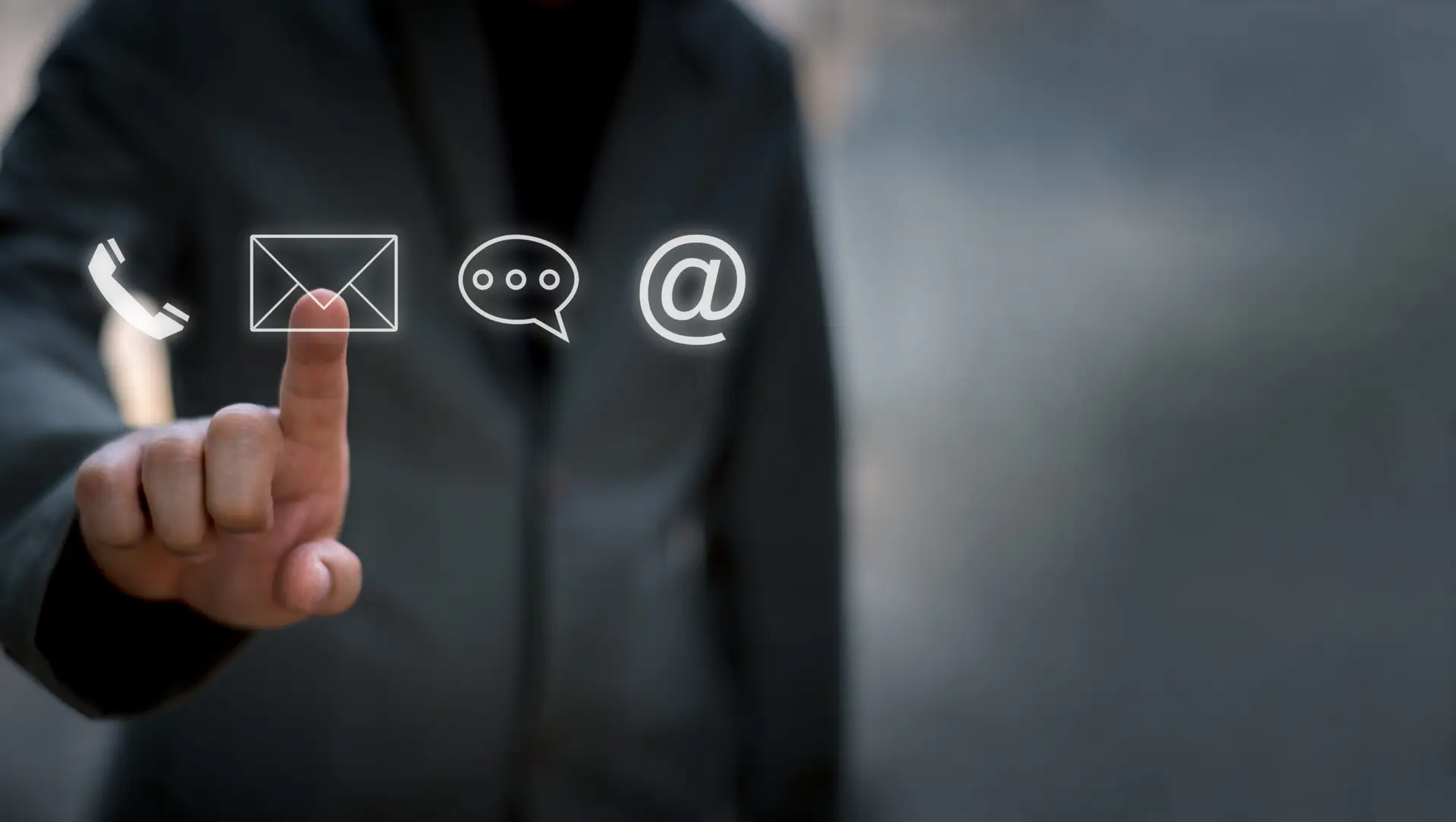FM Radio, a vastly different medium
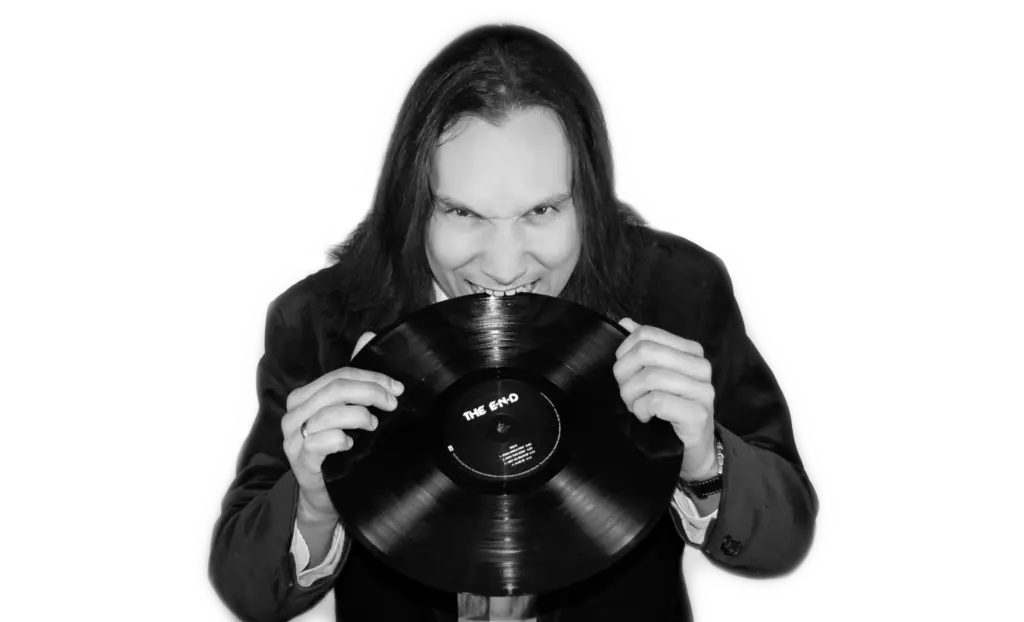
As far back as I can remember, I wanted to be on the radio. I desired to be one of those voices that entertained a crowd wherever they listened. My father spun records and was a mobile DJ (he is what they call an OG), but he had this collection of records called Cruisin’ from Increase Records. These records were formative during key years of my development and helped introduce me to the world of radio and music.
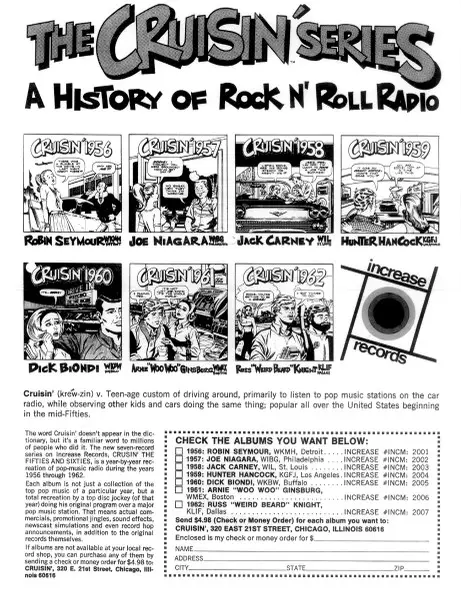
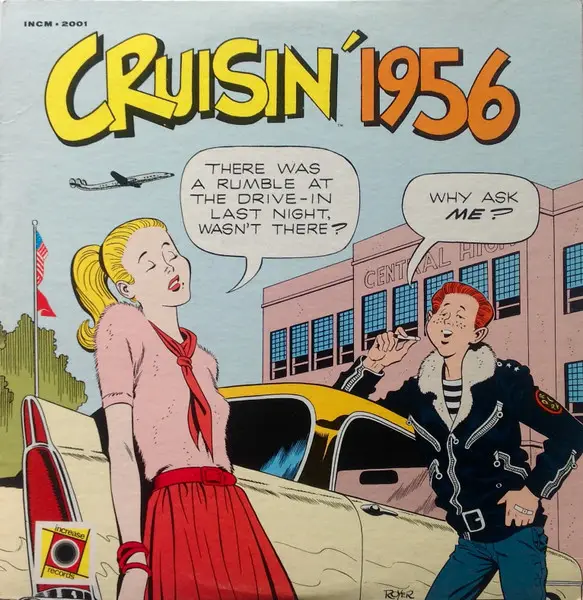
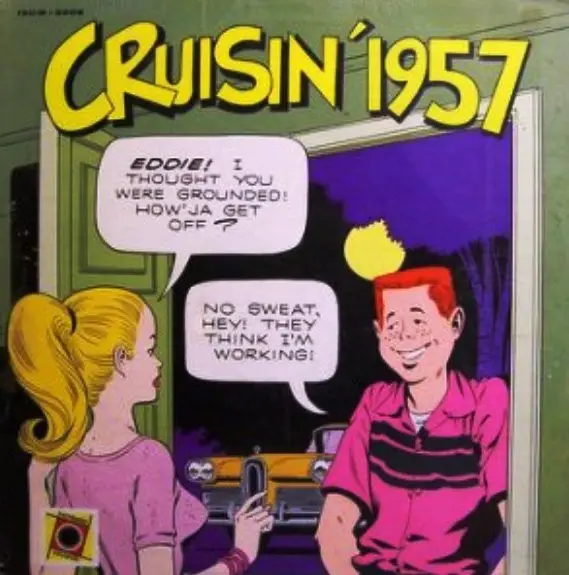
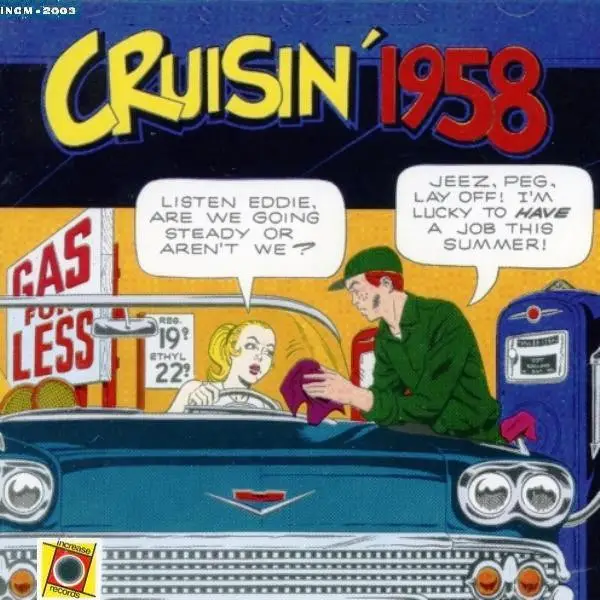
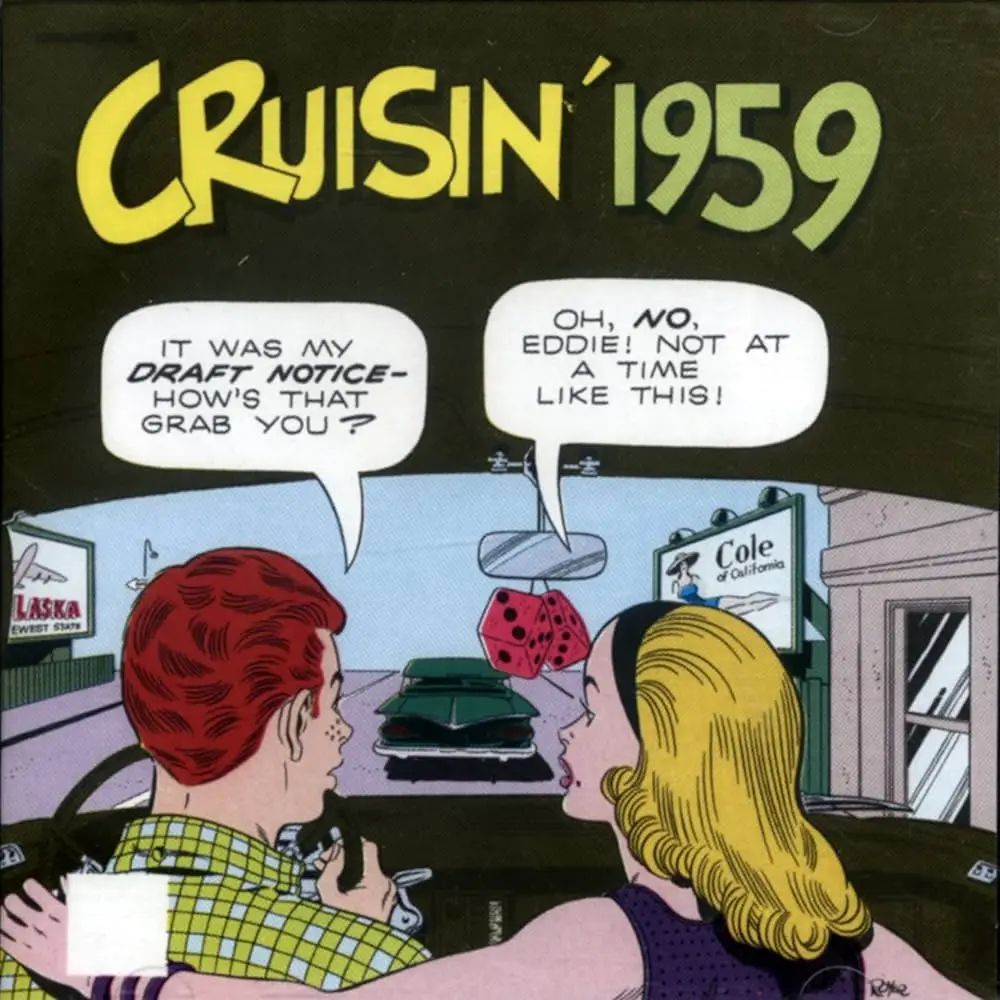
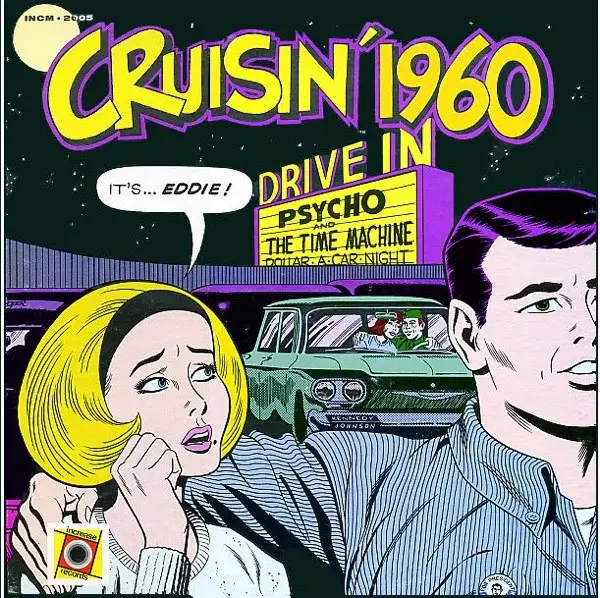
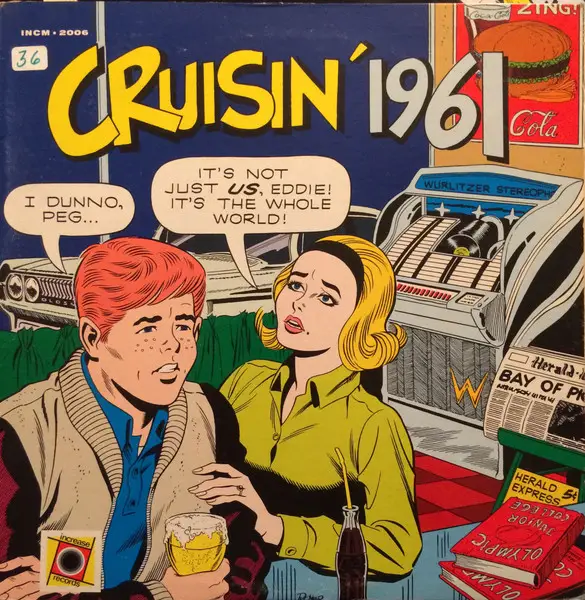
It was a sampler series with all the elements of old radio from the 50s and 60s, complete with the radio DJ introducing the songs commercials and station promos. These are the true artists of their craft, these jocks are legendary. I thought it was simply brilliant. How the DJ crafted his words and ideas right into the song’s intro, nailing the post with enough precision to make a surgeon take notice. While most would focus on what the DJ was saying, I keenly honed in the delivery and how they were saying it. It hooked me instantly.
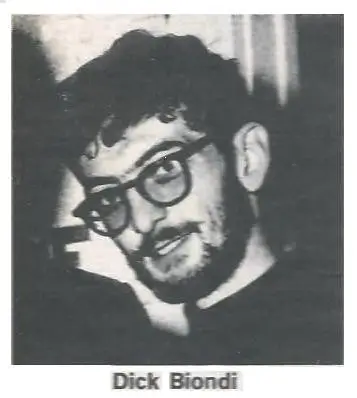
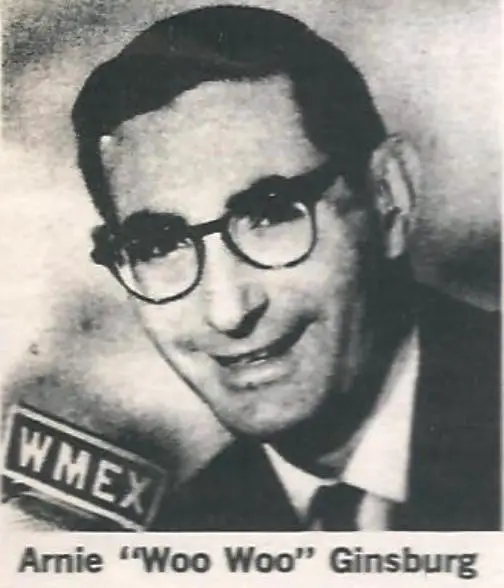
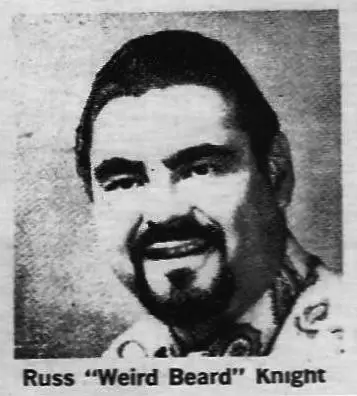
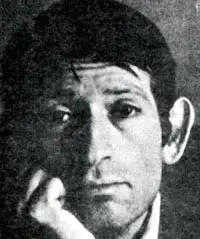
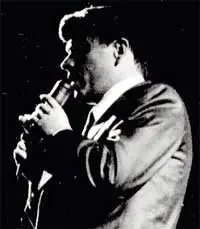
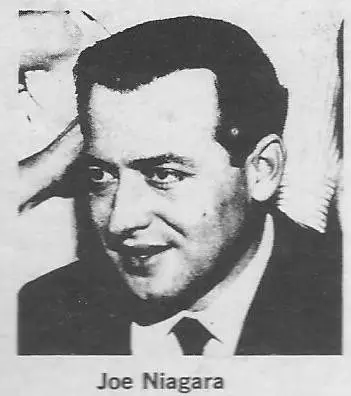
The artwork was as intriguing as the audio treasures the records housed. I couldn’t even read the text at that age, but I remember wondering what they were saying to each other. It wasn’t until later in life, recollecting where my love of radio derived, that I remembered this record series.
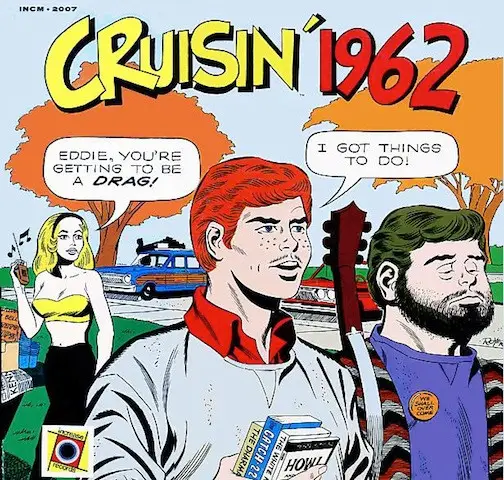
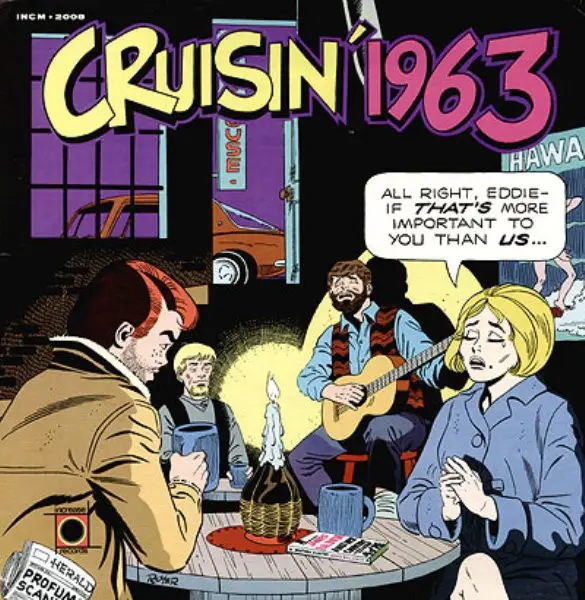
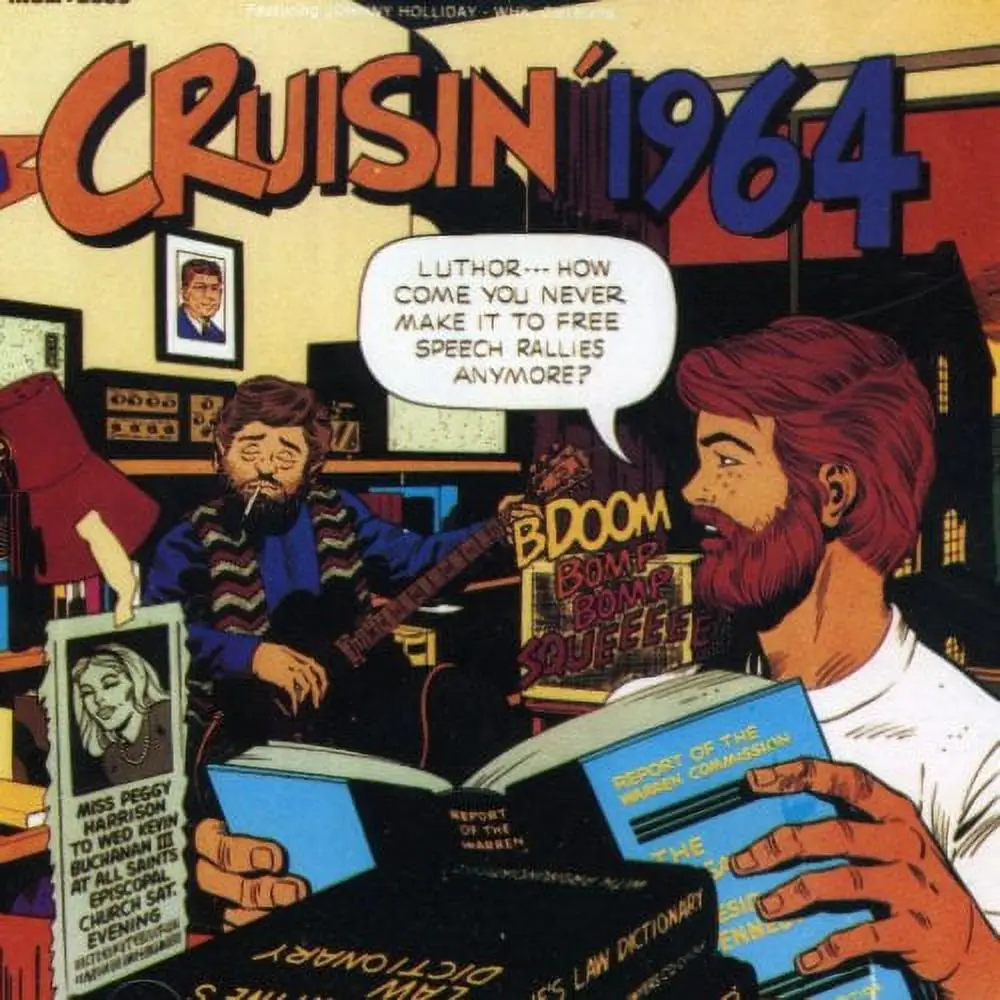
It isn’t the radio broadcast job I started as a 20-year-old. The early 2000s seem like a lifetime ago. Think about it: all that has happened since 2000. 9/11 Attacks on New York and Washington, Anthrax attacks, President Bush, Obama, Trump and Biden have served as presidents. Hurricanes Sandy and Katrina wrecked the U.S. government shutdowns, spying and a pandemic gripped the world. Oh yeah, we had a few who tried to overthrow the government by storming our nation’s capital on January 6, 2021. Twenty-three years ago, I set out to join the fraternity of local broadcasters. I’ve been radio for the majority of my adult professional life. Working my way to Citadel Communications (formerly Caribou Radio Group, sold 1999), now Cumulus Media, I’ve seen faces and voices change as radio formats do in OKC. At an early age, radio DJs captivated my attention. It was the construction of the message and the delivery method over FM airwaves that were and still are fascinating to me. However, technology, how people receive their messages, and the sociology of the Oklahoma City radio listener have changed. Here are five observations of FM radio changes or evolutions and my approaches to remedying them.
The disappearance of audio tape and other mediums.
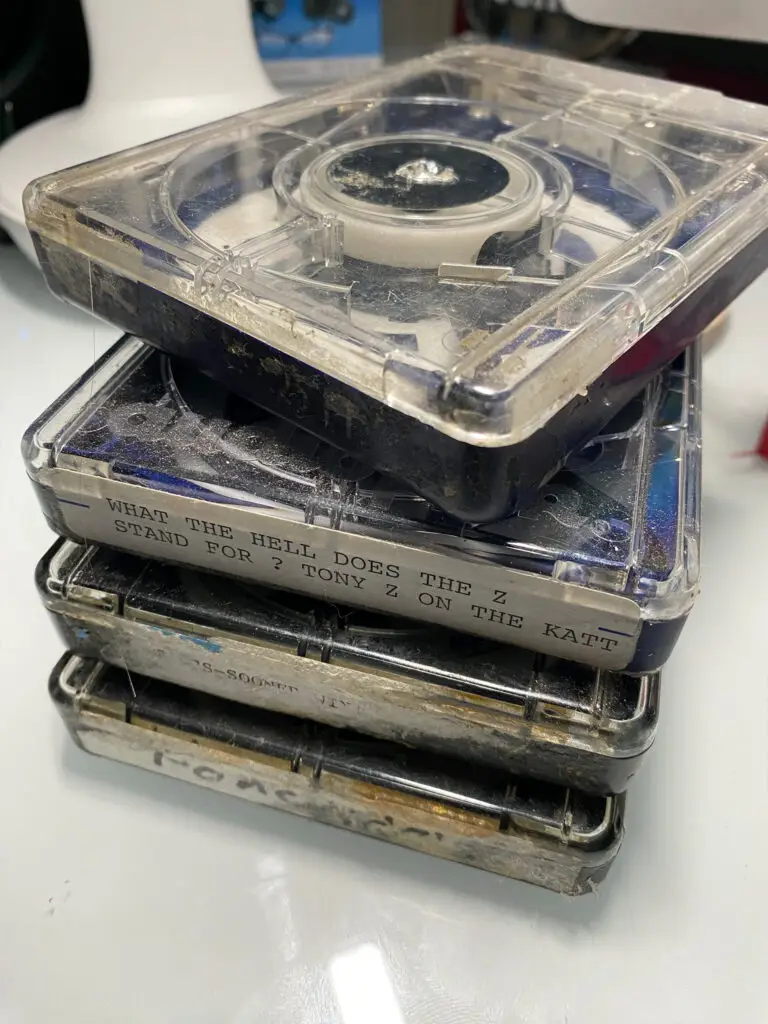
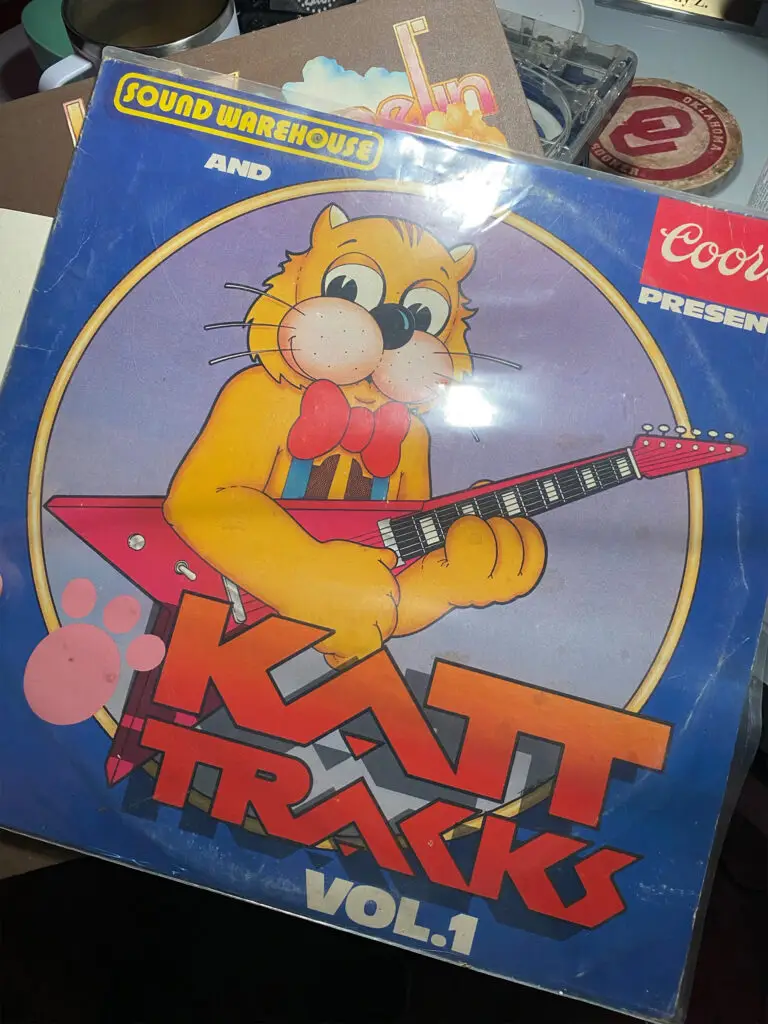
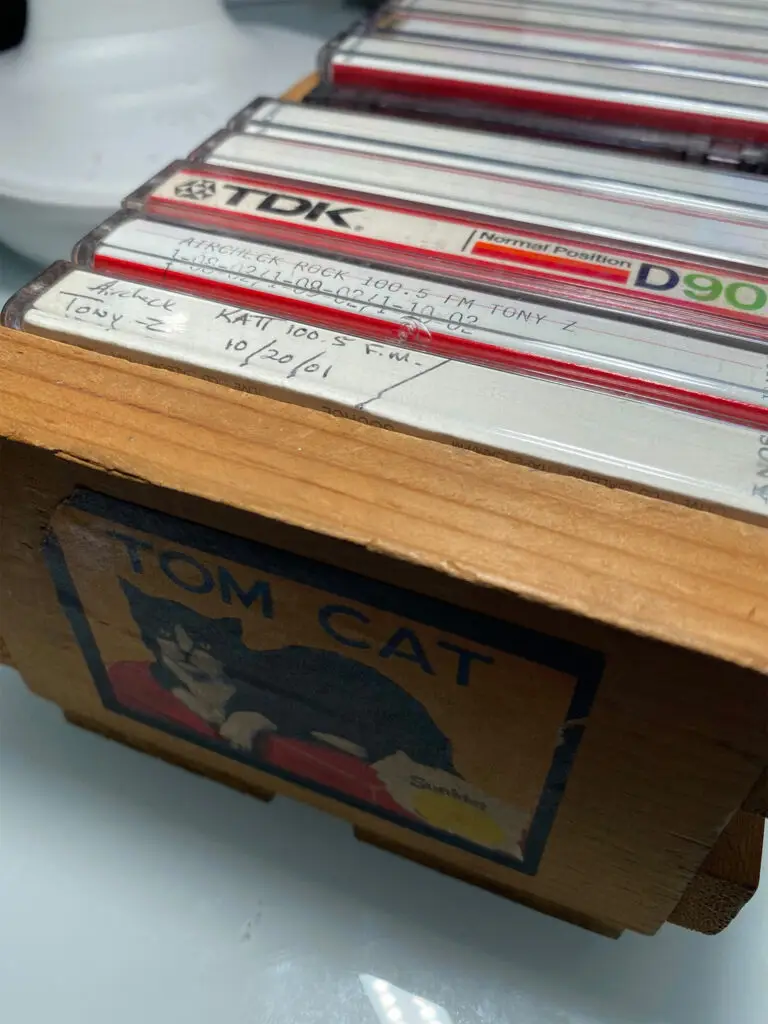
When I began moonlighting as a promotion guy (the entry-level position in radio) and weekend/overnight jock on heritage rocker KATT FM Rock 100.5 the KATT, it was the job of the overnight KATT guy to catch the sports feeds that came down the satellites at 2:20, 3:20 and 4:20 am. You were to grab the feed for the sports talk radio station’s morning show on WWLS, the David Letterman top ten list for Rick and Brad on the KATT and Jay Leno monologue for Jack and Ron on KYIS. If you missed the feeds, the morning shows would have no audio for their shows. All these feeds were your responsibility to capture and cue up. As the overnight KATT jock, it was also your duty to watch the other stations of the cluster, ensuring you signed in on the transmitter logs, commercials ran, and Scott Studios automation software ran properly. Thankfully, technological advancement enables us so much more now with automation and remote VPN. It eliminates the need for a human to present to watch over them. We maneuvered through Windows XP and burnt CDs to the flash drive. It is quite frankly, in my opinion, still the easiest way to operate with files between machines. At the same time, your IT department hates the idea of you sticking that flash drive (possibly loaded with a virus.. or ten) in the company machines. Cloud-based technologies are a solution and are becoming more popular, as are large data networks that can help store and exchange data with those with access. However, connectivity issues are always a hazard. Connectivity issues are also what plague streaming services. A reliable connection is paramount to all of our survival. Well, that may be a bit overstated, but think about it. What happens if a widespread power outage or internet services are down for an extended period? Technology has delivered connectivity inside broadcast studios, too, but not without error. Before, the computer with an internet connection was just another tool like your reel-to-reel, turntables, cart and CD decks. It’s now the brains of the operation that connects the operator, engineer and audio network within the facility. For example, Internet and connectivity issues between the board and computer weren’t as complicated as before the installment of the new digital board. It allowed for a separation between the computer running the software and the programming on the air. So, if you went off the air, there was still a pot you could utilize to throw on a CD or other alternative programming while you were “off the air.” Recently, I had an issue with the Scott Studios software crashing and taking everything with it, rendering my board useless in passing any audio to the airwaves. At the moment, there may have been a better solution to get something on the air, but I couldn’t think of it.
Solutions
- Plan accordingly and never skip on upgrading the technology of the day. A better contingency plan would help alleviate the dead air if connectivity issues arise again.
- *For management* Consultations and careful considerations of the technological needs and wants of the engineering staff. Without the broadcast technology, it doesn’t matter the talent because nobody can hear them. Skimping now may cost significantly later.
- *For management* Listen to the airstaff and their tech needs and wants. Perhaps they know about a new app or platform where listeners hang out. Embrace those platforms and use them frequently with updates and content.
- Working from your machine also will help serve you better. With space restrictions on the network and lack of accessibility when operating outside, working from your machine with your files will help productivity.
- Get an Adobe ID and use the vast array of products the suite offers. It is a fantastic set of tools I couldn’t imagine living without.
Radio culture has changed
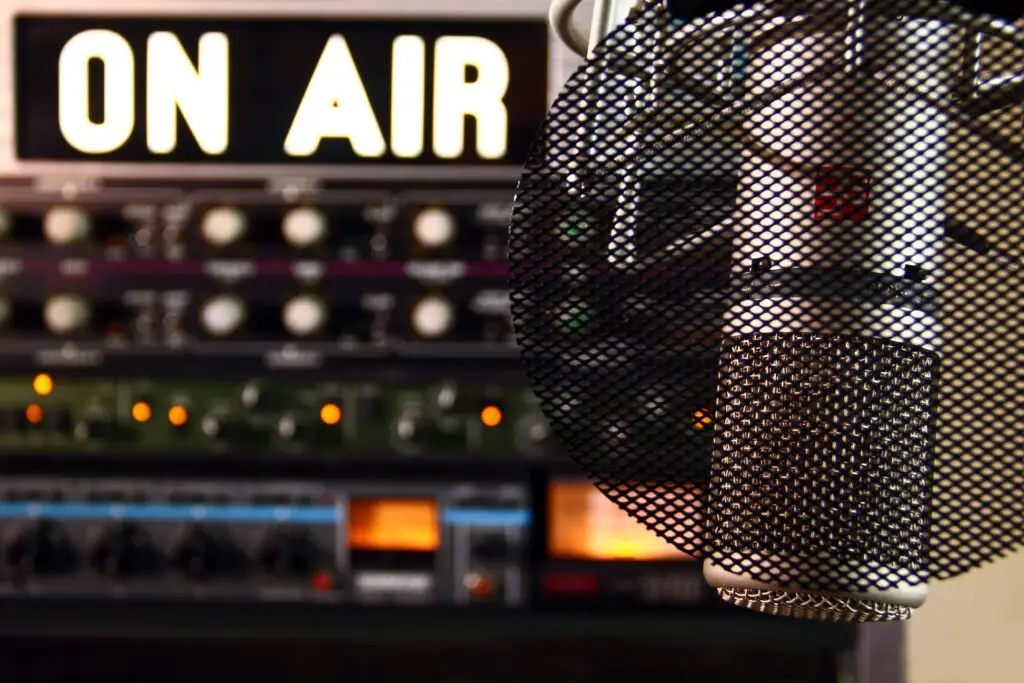
Drastically. Gone are the days of station fellowship and frivolity, except with a few required personnel around the building. Gone are the good old boys of radio days. Corporations and conglomerates keenly sucked the lifeblood from the industry. In my early years, radio created a culture of fun. The bustling environment at the station made the idea that the radio station was the place to be. To no fault of their own, higher-ups relegate themselves to sales and bottom-line-driven activities where, in the past, they were directly involved in the planning of radio promotions and what the station was planning instead of weekly reports and earning calls. Now, it is driven by profit and solely by the vehicle of advertising. I get it; we sell advertising, but radio still involves an entertainment aspect. For a long time, listeners and outsiders of FM radio envisioned radio as the fun-loving cast of WKRP in Cincinnati, and it was for the most part. In my naivety, I guessed that’s what the ‘corner office folk’ were supposed to do: act as the head honcho and say yes or no to the demands of the air staff while skipping out early on Friday for cocktails at 3.
Solution
Solution:
- A little bit goes a long way. The mere acknowledgment of deeds done well is a start. However, action is always better than words.
- (This is a long shot, but) In an age of secrecy and privacy, keeping your next move under wraps is a good strategy. Keeping your staff up to speed on what is happening is paramount to morale and understanding.
Where is everyone?
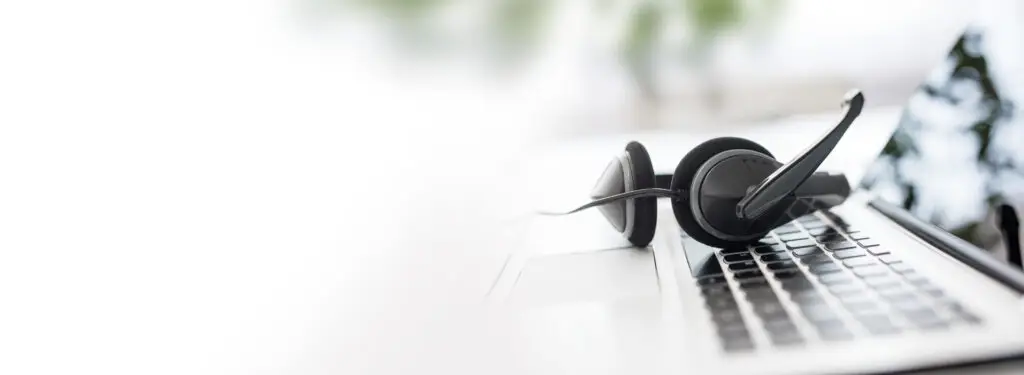
Before the pandemic, the daily number of living beings moving about the radio station was abundant—live jocks on each station and everyday part. The radio station was alive and breathing. As with many sectors, companies are trending towards less office space and a lower real estate footprint. “By 2030, the demand for office space will be as much as 20% lower than it was in 2019, depending on the city,” according to a report by the McKinsey Global Institute (Dhue, 2023). “While remote and hybrid work is the big reason, the trend toward more desks in less space and less space and shifts to automation were also factored into its analysis” (Dhue, 2023). Radio, in my experience in OKC, this is the case. I feel this trend of remote working has far more limitations than advantages. As a guy who came in each day before and after the pandemic, I witnessed the slow death of the traditional office space.
Solution
- It is time to return to work in a capacity proportional to that pre-pandemic. The WHO has officially declared the pandemic over, and state and local governments have returned to total business (minus those in Washington who can’t seem to get it together). It is time to shift our focus back to the space that made radio great, the station.
- Again, this is where having your audio setup will be critical to your success and save you some money in travel. Get a mic and interface with your trusty laptop. You can broadcast virtually anywhere. Installing the Tieline app and embracing the mobile studio is another way to adapt with your smartphone.
The listener is changing, and what they value is, too
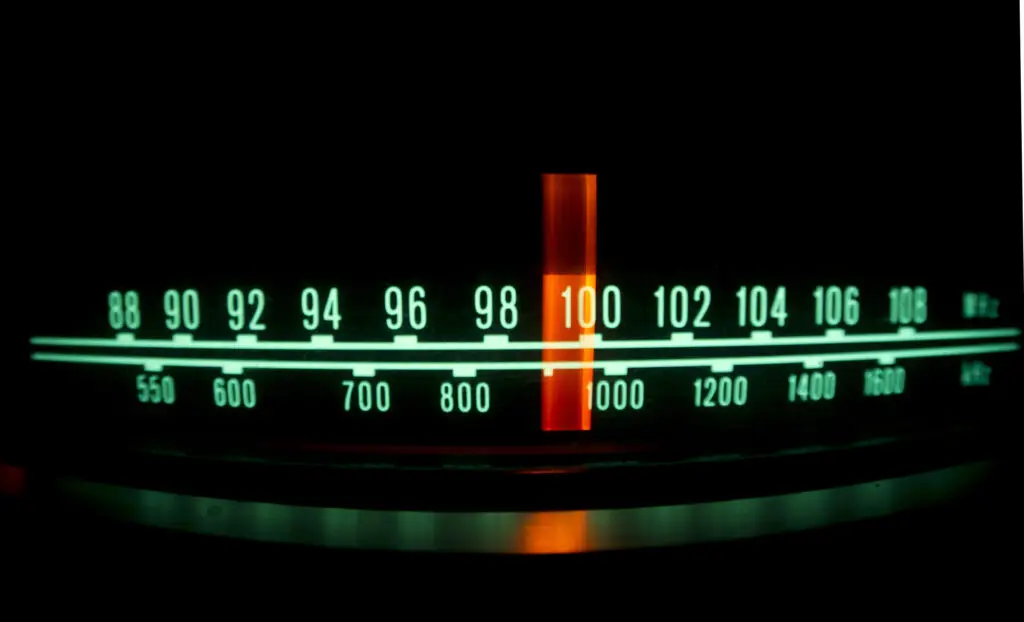
Just as the desertion of the office for remote work for employees, listening habits have evolved. Radio needs to find a way to re-tap into the daily lives of listeners. At one time, radio was at the forefront of culture and created trends for the public. No longer is radio at the forefront. Listeners have an abundance of free choices to turn to. These choices often are supported platforms that include paid tiers of memberships. Otherwise, they can opt for the free option and experience advertisements. FM radio needs to find a way to offer customization of its content or not plan for the future on outdated metrics and rubrics. It’s a lesson we should have learned from the pandemic. Anything can happen, and it all can change in an instant. Adaptability is something employers seek when hiring, but it is often the employer that struggles with adapt.
Solution
Remember, your audience has choices. When it may seem redundant to schedule the music, it’s easy to plug in the formula you know or received. If you are planning a station event, think differently and big. Mix it up. Your audience will thank you. What may have worked before may not now. I refuse to denigrate my audience’s intelligence by thinking that programming music is an exact science. What’s good is good. I understand music is subjective, but you still operate within the confines of a format, right? They call this understanding your audience and personas. The listener can quickly hook up their phone via Bluetooth or cord and stream that song unedited and for free on their phone. They aren’t stupid. Don’t try to manipulate or treat them as such. FM Radio must avoid using antiquated metrics and adjust for those accordingly.
Station individuality is a thing of the past
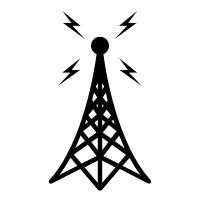
It pertains to management and those who decide a budget for items such as branded promotional items. When CFOs and those who formulate budgets place branded items on the list of things to include, that’s the problem. We promote and advocate for businesses that trust our abilities to help them drive business. I don’t know, maybe something as small as a pencil with a logo, especially those stations with memorable brands. It goes a long way in the community and creates a sense of nostalgia. I have seen firsthand with the KATT sticker in OKC. These stickers have been around for decades until recently. The idea was to sell a sponsorship on the back to drive business to that company.
Solution
- It worked several times during my run at the station but has since stalled. I have seen several times, first hand, the value of these stickers and how people go crazy over them. It is cool to hand them a sticker or KATT shirt and watch their eyes light up. Pretty cool. Why not return to the days of having branded content on the listeners that support your radio station? I understand the financial burden, but where there is a will, there is a way. Branding is a part of the DNA of a radio station, and the following that supports it.
- Any station promotion adds to the status of the stations. It helps identify the frequency at which people can find you. I know there is little value or appetite from the higher-ups for this stuff, but it’s about being in touch with your listeners. Relinquishing a small token of gratitude shouldn’t and won’t destroy the budget.
It may seem a bit calloused, but I have been on the radio, not as long as others, but long enough to know what I’ve seen. I don’t have all the answers either. These are just observations and proposed solutions. Maybe these suggestions are starting points for more significant conversations within circles I’m far too underqualified to enter. Where would you begin to restore faith in FM radio, and what solutions would you offer to the issues? Leave a comment below and let me know what you think. Until next time.

References
Dhue, S. (2023, July 13). Hybrid work is the new normal, as companies rethink work habits and office and retail space. CNBC. https://www.cnbc.com/2023/07/13/hybrid-work-is-new-normal-as-companies-rethink-work-habits-spaces.html

